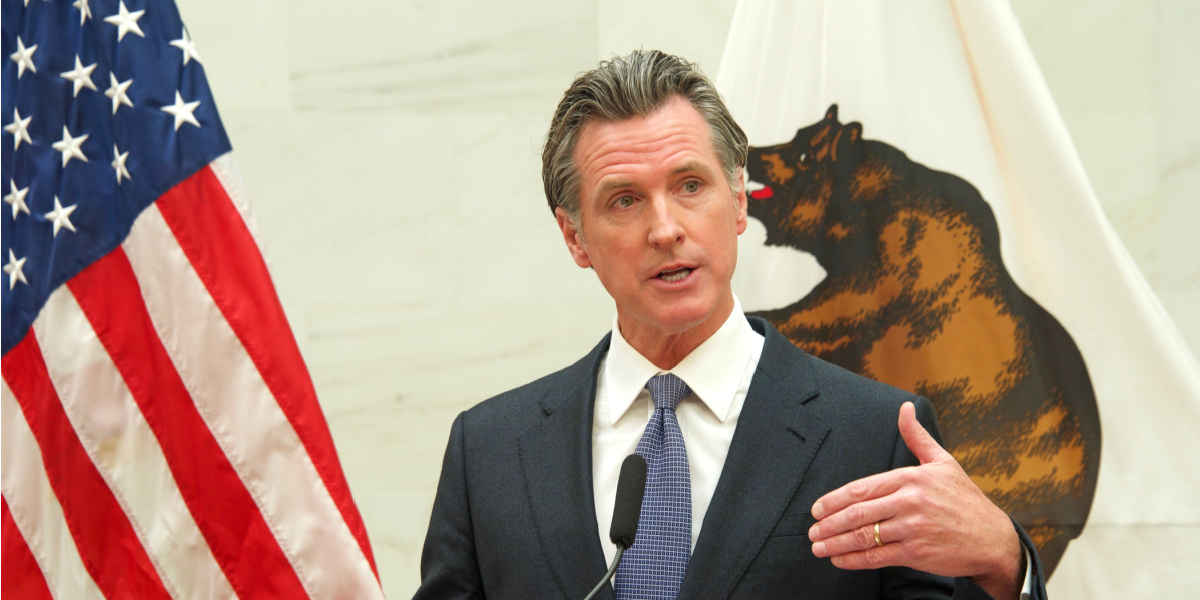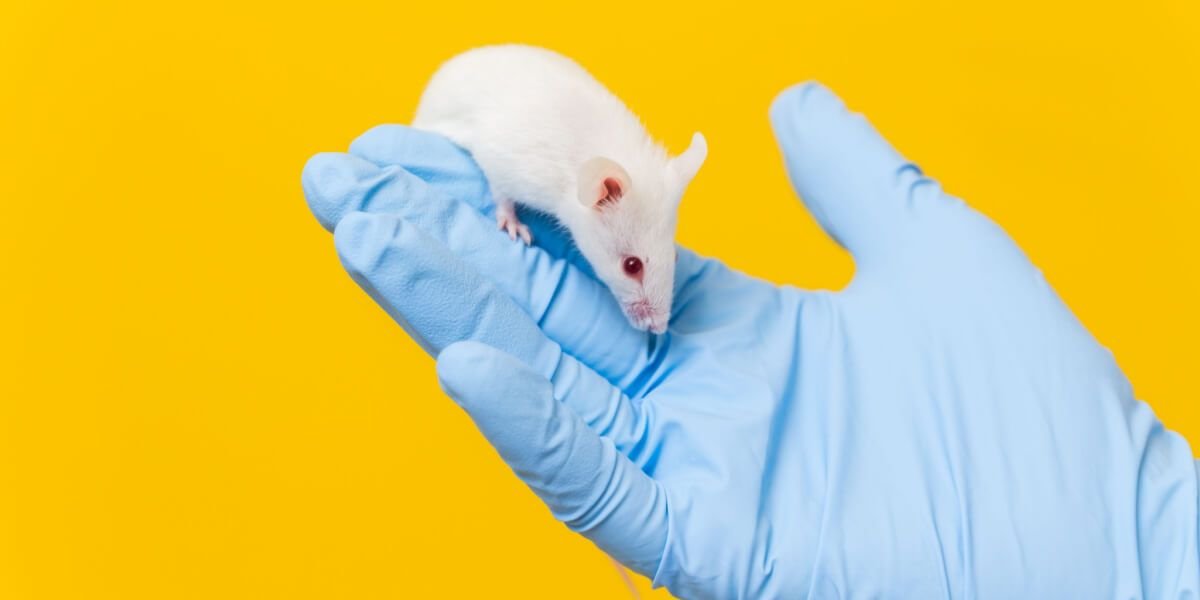Citing the need for more guardrails, California Governor Gavin Newsom vetoed state legislation that would have decriminalized the possession and personal use of several hallucinogens, including psilocybin mushrooms.

Bill would have permitted personal use of natural psychedelics
The Democratic governor said he supports “new opportunities to address mental health through psychedelic medicines,” but says Senate Bill 58 moves too quickly before treatment guidelines are in place. [1]
The bill, passed by California lawmakers in September, would have, from 2025, removed criminal penalties for Californians over 21 possessing small amounts (up to 4 grams) of several plant-based hallucinogenic drugs: psilocybin and psilocin, the active ingredients in magic mushrooms; mescaline; and DMT, the psychoactive substance in ayahuasca, a brew consumed for spiritual reasons. [2-4]
The sale of these substances, including in dispensaries, would not have been permitted and substances would not have been allowed on school grounds. Synthetic psychedelics such as LSD wouldn’t have been included and all psychedelics would have remained illegal under federal law.
The bill also would have required the California Health and Human Services Agency to study the medicinal use of psychedelics and submit a report of its findings to the state legislature. [2]
Advocates highlighted the therapeutic use of psychedelic plants
Bill sponsors cited recent research into the therapeutic potential of psychedelics, including their use to treat mental health conditions, and the legislation had been backed by veterans groups.
“California’s veterans, first responders, and others struggling with PTSD, depression, and addiction deserve access to these promising plant medicines,” state senator Scott Wiener, author of the bill, said following a successful vote in the California Assembly last month. [2]
The bill also attracted support from criminal justice reform advocates, who have been pushing California to reduce or remove the penalties for the possession of illicit substances, much as neighboring Oregon did in 2021.
The legislation was opposed by law enforcement, parent groups, and some mental health professionals.
Newsom says regulation not yet in place for therapeutic use of psychedelics
In his veto statement, Newsom acknowledged promising research into psychedelics and insisted that California would be on the cutting edge of treatments. However, he said more work needs to be done before laws are relaxed.
“California should immediately begin work to set up regulated treatment guidelines — replete with dosing information, therapeutic guidelines, rules to prevent exploitation during guided treatments, and medical clearance of no underlying psychoses,” he said.
“Unfortunately, this bill would decriminalize possession prior to these guidelines going into place, and I cannot sign it,” he wrote. [1]
Newsom urged lawmakers to reintroduce legislation that includes treatment protocols next year. Such a bill, considering “impacts, dosing, best practice, and safety guardrails” could be a “framework for potential broader decriminalization in the future,” he added. [1]
The veto marks a shift in Newsom’s approach to drug reform, contrasting with his earlier support for progressive measures. As lieutenant governor, he championed Proposition 64, a 2016 ballot measure that legalized recreational cannabis in the state. As governor, he has been more circumspect on drug reform, sometimes even lagging behind the Biden administration. Last year Newsom vetoed legislation, also authored by Wiener, that would have created a pilot program for safe injection sites in California cities. Meanwhile, the federal government is currently funding a large-scale study into this harm-reduction strategy. [5][6]
Bill sponsors and advocates say they’ll try again
Bill sponsors were disappointed by Newsom’s veto but undefeated. Wiener said in a statement: “This is a setback for the huge number of Californians — including combat veterans and first responders — who are safely using and benefiting from these non-addictive substances and who will now continue to be classified as criminals under California law.” [5]
He added that the “evidence is beyond dispute that criminalizing access to these substances only serves to make people less safe and reduce access to help. Today’s veto is a huge missed opportunity for California to follow the science and lead.” [7]
The vetoed bill was already Wiener’s second attempt to win decriminalization. A broader bill, which would have decriminalized a longer list of substances, including LSD, MDMA, ketamine, and ibogaine, stalled in the California Assembly last year. [8]
Jesse Gould, a veteran Army Ranger and founder of Heroic Hearts, told the Los Angeles Times that the response from veterans is "overwhelming sadness and frustration.” He said the community will continue to “fight to provide access to life-changing treatments for all Californians.” [5]
However, the California Coalition for Psychedelic Safety and Education, which opposed the bill and urged a more cautious approach to decriminalization, welcomed the veto.
“We’re grateful that Governor Newsom listened to some of the top medical experts, psychedelic researchers, and psychiatrists in the country who all warned that legalization without guardrails was at best premature for both personal and therapeutic use,” the coalition said in a statement.
“Any move toward decriminalization will require appropriate public education campaigns, safety protocols, and emergency response procedures to help keep Californians safe.” [8]
The coalition is led by a group of mothers whose children died as a result of adverse reactions to psychedelics or accidents while under their influence. [9]
Despite veto, decriminalization is on the horizon
Newsom’s veto may have slowed California’s journey toward legal psychedelics but it has certainly not stopped it.
Already five cities in the state—Oakland, Santa Cruz, Arcata, Berkeley, and San Francisco—are among the more than a dozen U.S. jurisdictions that have effectively decimalized natural psychedelics, making the personal possession and use of these substances the lowest law enforcement priority. [10]
Even in jurisdictions where psychedelics remain criminalized, some dispensaries of legal cannabis are openly selling them, a Los Angeles Times investigation revealed. In the six months to May, the L.A. County Sheriff’s Department served more than 50 search warrants at dispensaries selling magic mushrooms. [11]
Meanwhile, advocates are seeking another path to decriminalization, bypassing legislation and heading for the ballot box. If they have their way, Californians will be asked to vote on two initiatives during the 2024 elections, one legalizing the use and sale of magic mushrooms for people over 21 and another allocating $5 billion to establish a state agency to research psychedelic therapies. [8]
And while California stalls, action could come from the federal level. The FDA is expected to authorize the therapeutic use of MDMA for PTSD and psilocybin for treatment-resistant depression as early as next year. [12]
A recent UC Berkeley study found that six in ten (61%) of registered voters in the U.S. support legalized, regulated therapeutic use of psychedelics. [13]
Conclusion
California Governor Gavin Newsom’s veto of Senate Bill 58 reflects a cautious approach to psychedelic drug reform. While acknowledging the potential mental health benefits of psilocybin and other natural hallucinogens, Newsom stressed the need for robust treatment protocols, safety guidelines, and public education before decriminalization. Despite this setback, efforts toward psychedelic decriminalization persist through local initiatives, potential statewide ballot measures, and expected federal approval of therapeutic applications.


-blog-detail.jpg?v=1722513598)
-blog-detail.jpg?v=1722513257)
